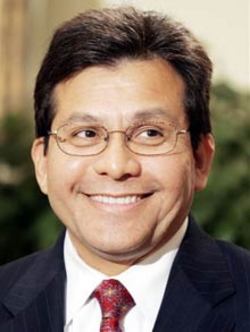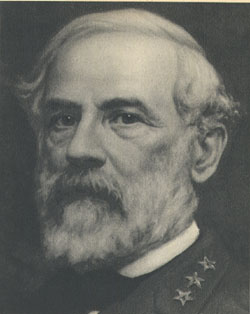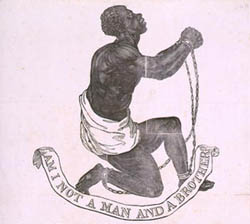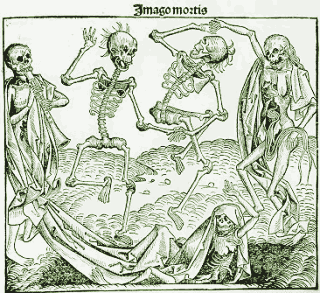Andrea Dworkin does not believe that all heterosexual sex is rape
This Mythistory Monday
sort of straddles the line between historical
and topical
: the myth in question is the endlessly repeated chestnut Andrea Dworkin claims that all heterosexual sex is rape. No she doesn’t; she never said this, and has repudiated it when asked directly. The myth is historical, in a sense, since it deals with the upshot of key writings of Second Wave feminism in the 1970s and 1980s. The myth is topical, in a sense, since Andrea Dworkin’s still alive and still writing, and since it seems the idiot notion seems to keep coming up no matter how many times it is addressed (see, for the latest example, Mark Fulwiler’s regrettable comments–which he later, in part, retracted–in the Liberty and Power controversy that Roderick and I have managed to stir up). But whether historical or topical, it’s all bunk.
Dworkin’s slanderers, if they bother to cite anything from her work at all (which they usually don’t), usually skim some out-of-context quote or another from Intercourse; often, for example, something like this:
A human being has a body that is inviolate; and when it is violated, it is abused. A woman has a body that is penetrated in intercourse: permeable, its corporeal solidness a lie. The discourse of male truth–literature, science, philosophy, pornography–calls that penetration violation. This it does with some consistency and some confidence. Violation is a synonym for intercourse. At the same time, the penetration is taken to be a use, not an abuse; a normal use; it is appropriate to enter her, to push into (“violate”) the boundaries of her body. She is human, of course, but by a standard that does not include physical privacy. She is, in fact, human by a standard that precludes physical privacy, since to keep a man out altogether and for a lifetime is deviant in the extreme, a psychopathology, a repudiation of the way in which she is expected to manifest her humanity.
— Andrea Dworkin, Intercourse, chapter 7
Or this:
Male-dominant gender hierarchy, however, seems immune to reform by reasoned or visionary argument or by changes in sexual styles, either personal or social. This may be because intercourse itself is immune to reform. In it, female is bottom, stigmatized. Intercourse remains a means or the means of physiologically making a woman inferior: communicating to her cell by cell her own inferior status, impressing it on her, burning it into her by shoving it into her, over and over, pushing and thrusting until she gives up and gives in– which is called surrender in the male lexicon. In the experience of intercourse, she loses the capacity for integrity because her body–the basis of privacy and freedom in the material world for all human beings–is entered and occupied; the boundaries of her physical body are–neutrally speaking– violated. What is taken from her in that act is not recoverable, and she spends her life–wanting, after all, to have something–pretending that pleasure is in being reduced through intercourse to insignificance.
— Andrea Dworkin, Intercourse, chapter 7
But taking the interpretation, from these passages, that Dworkin thinks all heterosexual sex (or all penis-in-vagina intercourse) is rape merely amounts to a misunderstanding–either because the reader has only encountered passages like these, out of context, in a horror file
-style catalogue or because he or she is not extending the same effort at interpretive charity towards Dworkin that she or he would for anyone else. Both seem to be unfortunately common conditions; as a result, statements that Dworkin makes about the meaning of intercourse are routinely misinterpreted as statements made in propia voce when in fact they are statements of the meaning attributed to intercourse by male supremacist culture and enforced by the material conditions (economic vulnerability, violence) that women face under patriarchy. These are meanings that Dworkin, among other things, intends to criticize (anyone who has had to write a long exposition of a systematic view with which they disagree could probably be misinterpreted in the same way).
Dworkin’s argument in Intercourse is not that the anatomical features of heterosexual intercourse make it tantamount to coercion. Dworkin has no patience at all for anatomical essentialism–something you should know if you’ve read essays such as Biological Superiority: The World’s Most Dangerous and Deadly Idea. Intercourse is not an anatomy textbook; it’s an examination of intercourse, as a social practice and a lived experience for women, under the cultural and material conditions of a male supremacist society. When she describes intercourse as, for example, occupation
, she does not mean that the biological act itself involves occupation; she is talking about intercourse as it is consistently depicted in male supremacist culture, and as it is consistently acted out in a society where rape and male-centric sexuality are extremely defended and culturally excused or even valorized. That doesn’t mean that equality requires the end of either sexual pleasure or, specifically, heterosexual intercourse; it does mean that it requires a radical change to the way it is thought of and approached (she argues that this will involve, inter alia, a sexuality that isn’t monomaniacally focused on intercourse; but that’s a different claim).
In passages like the second one, Dworkin is also specifically responding to sexual liberals and to some feminists (in this case, Victoria Woodhull), who take the legitimacy of intercourse-centric sexuality and intercourse as it is currently practiced more or less for granted–and attempt to draw all the ethical lines on the matter strictly in terms of formal consent, or (in the case of Woodhull) in terms of some more robust sense of women’s sexual autonomy, without challenging the cultural centrality of intercourse or the way in which intercourse is systematically shaped and mandated by the surrounding cultural and material conditions that men impose on women in a patriarchal society. It’s a matter of context; and, in talking about intercourse just as much as in reading the book, context oughtn’t be dropped in the effort to make some kind of point.
If I had to try to summarize what Dworkin is saying while standing on one foot, I’d try this woefully abridged summary of her major theses: (1) that patriarchal culture makes heterosexual intercourse the paradigm activity for all sexuality; other forms of sexuality are typically treated as “not real sex” or as mere precursors to intercourse and always discussed in terms that analogize them to it; (2) that heterosexual intercourse is typically depicted in ways that are systematically male-centric and which portray the activity as iniated by and for the man (as “penetration” of the woman by the man, rather than “engulfing” of the man by the woman, or as the man and woman “joining” together–the last is represented in the term “copulation” but that’s rarely used in ordinary speech about human men and women); (3) that the cultural attitudes are reflective of, and reinforce, material realities such as the prevalence of violence against women and the vulnerability of many women to extreme poverty, that substantially constrain women’s choices with regard to sexuality and with regard to heterosexual intercourse in particular; (4) that (1)-(3) constitute a serious obstacle to women’s control over their own lives and identities that is both very intimate and very difficult to escape; (5) that intercourse as it’s actually practiced occurs in the social context of (1)-(3), and so intercourse as a real social institution and a real experience in individual women’s lives is shaped and constrained by political-cultural forces and not merely by individual choices; (6) that, therefore, drawing the ethical lines in regards to sexuality solely on the basis of individual formal consent rather than considering the cultural and material conditions under which sexuality and formal consent occur makes it hard for liberals and some feminists writing on sexuality to see the truth of (4); that (7) they therefore end up collaborating, either through neglect or endorsement, with the sustanence of (1)-(3), to the detriment of women’s liberation; and (8) feminist politics require challenging both these writings and (1)-(3), that is, challenging intercourse as it is habitually practiced in our society. But, while I hope this helps clarify a bit, you really should just read the whole book for yourself to understand what’s going on.
The myth is one that Andrea has battled for many years now. Here’s what she had to say about the matter in her 1995 interview with Michael Moorcock
After Right-Wing Women and Ice and Fire you wrote Intercourse. Another book which helped me clarify confusions about my own sexual relationships. You argue that attitudes to conventional sexual intercourse enshrine and perpetuate sexual inequality. Several reviewers accused you of saying that all intercourse was rape. I haven’t found a hint of that anywhere in the book. Is that what you are saying?
No, I wasn’t saying that and I didn’t say that, then or ever. There is a long section in Right-Wing Women on intercourse in marriage. My point was that as long as the law allows statutory exemption for a husband from rape charges, no married woman has legal protection from rape. I also argued, based on a reading of our laws, that marriage mandated intercourse–it was compulsory, part of the marriage contract. Under the circumstances, I said, it was impossible to view sexual intercourse in marriage as the free act of a free woman. I said that when we look at sexual liberation and the law, we need to look not only at which sexual acts are forbidden, but which are compelled.
The whole issue of intercourse as this culture’s penultimate expression of male dominance became more and more interesting to me. In Intercourse I decided to approach the subject as a social practice, material reality. This may be my history, but I think the social explanation of the
all sex is rapeslander is different and probably simple. Most men and a good number of women experience sexual pleasure in inequality. Since the paradigm for sex has been one of conquest, possession, and violation, I think many men believe they need an unfair advantage, which at its extreme would be called rape. I don’t think they need it. I think both intercourse and sexual pleasure can and will survive equality.It’s important to say, too, that the pornographers, especially Playboy, have published the
all sex is rapeslander repeatedly over the years, and it’s been taken up by others like Time who, when challenged, cannot cite a source in my work.
And here’s what she and Nikki Craft add at the Andrea Dworkin Lie Detector:
And in a new preface to the tenth-anniversary edition of Intercourse (1997), Andrea explains why she believes this book continues to be misread:
[I]f one’s sexual experience has always and without exception been based on dominance–not only overt acts but also metaphysical and ontological assumptions–how can one read this book? The end of male dominance would mean–in the understanding of such a man–the end of sex. If one has eroticized a differential in power that allows for force as a natural and inevitable part of intercourse, how could one understand that this book does not say that all men are rapists or that all intercourse is rape? Equality in the realm of sex is an antisexual idea if sex requires domination in order to register as sensation. As sad as I am to say it, the limits of the old Adam–and the material power he still has, especially in publishing and media–have set limits on the public discourse (by both men and women) about this book [pages ix-x].
I hope that this has helped clear up matters a bit. This one may be a bit lame for a Myth-Busting Monday
–it’s already been handled by feministe, not to mention by Andrea Dworkin herself (via Nikki Craft’s web stylings). Nevertheless, it keeps coming up, and so I guess it is worthwhile to keep hammering the point home, and–if nothing else–do some writing for Google on the matter and up the Google juice a bit on other articles that touch on the same point. If I can bust this myth in one person’s head, then I’ll be quite glad; if I can get someone or another to actually read Intercourse before they start screeching for it to be burned, then I’ll be downright giddy.
Update 2005-01-23: Minor revisions, since this is written for Google, to enhance readability and usefulness.




 Roderick finds the spectacle of
Roderick finds the spectacle of